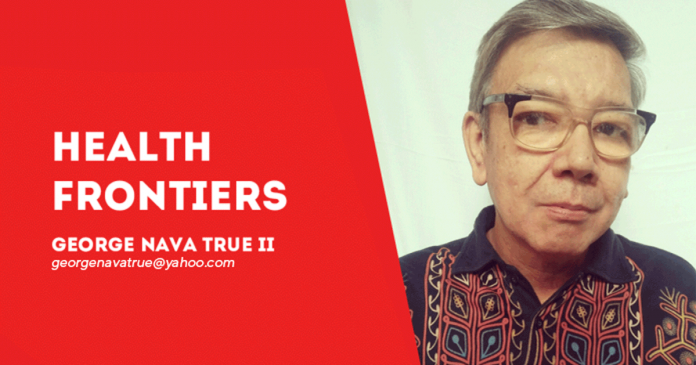
BY GEORGE NAVA TRUE II
IT’S GOING to be another bloody day in New Lucena, Iloilo tomorrow, March 17, 2021. A lot of people are expected to shed blood on that day. And it’s all because of one woman.
In case you’re wondering what’s going to happen. The municipality of New Lucena will be holding another blood donation activity at 8 a.m.
This was announced by Municipal Mayor Liecel Mondejar-Seville who said the event will take place at the municipal auditorium. The theme of this year’s activity is “Donate Blood, Give Life.”
Looking forward to bloodshed
Seville is looking forward to this day and is inviting everyone – whether from New Lucena or not – to join the activity. She said donating blood is a safe and quick way to save lives.
“We invite everyone to join this activity that will make you feel good about yourself and help others,” Seville said. This is the 9th time New Lucena has embarked on this life-saving activity.
Aside from knowing your blood type, blood pressure, and hemoglobin levels, donating blood fills an important role. Red blood cells, plasma, and platelets are needed for a lot of medical treatments and this can be a daily struggle in some countries. In the United States alone, about 40,000 blood donations are needed each day for different conditions like cancer, sickle cell disease, and anemia.
Other uses of donated blood
Blood is also required for the complications of pregnancy and surgery. It is used to make immunizations for chickenpox, hepatitis B, and tetanus among others.
The Philippine Red Cross (PRC) said a healthy person can donate blood every three months. The whole process takes about 30 minutes, while the extraction itself takes only 5 – 10 minutes. Disposable, sterile syringes and needles are used once so the donor won’t get any disease.
Donating blood won’t make a person weak. Nor does it have any side effects. This stimulates the bone marrow to produce new blood cells. Donated blood is screened for infectious diseases like HIV, malaria, syphilis, hepatitis B, and C before it is given to patients. The PRC said anyone can give blood provided that person is:
* Aged 16 – 65 years (teens aged 16 – 17 need parental consent while senior citizens need to be cleared by their respective doctors)
* Has no sexually transmitted diseases
* Has not smoked four hours before donating blood
* Has not taken alcohol for 24 hours
* Has not undergone surgery for a year
* Weighs at least 110 pounds or 50 kilograms
* With a systolic blood pressure of 90 – 140 and a diastolic pressure of 60 – 90
* With at least five hours of sleep
What to do before and after donating blood
Before donating blood, the PRC said a person should:
* Eat light meals and no fatty foods
* Drink plenty of water or juices
* Get enough rest and sleep well the night before
After donating blood, the person is advised to:
* Avoid stooping down
* Avoid strenuous activities like lifting heavy objects or driving big vehicles like a bus or truck
* Not operate big machines
* Rest for about 10 minutes
* Take more fluids like water and juice
If there is swelling and discoloration at the punctured site, apply a cold compress for 24 hours then a hot compress for the next 24 hours. If you feel dizzy, lie with the feet elevated and drink something sweet.
People who can’t give blood
Unfortunately, some people can’t donate blood. The PRC said this includes people with:
* A bad cold or the flu. If you have a fever or a productive cough on the day of donation, you will be told to return when you feel better.
* A recent piercing, tattoo, or any treatment that pierces the skin. These individuals have to wait at least four months before they can donate blood. This is to avoid transferring the hepatitis virus.
* People with certain types of cancer, or are being treated for blood cancers like leukemia, lymphoma, and Hodgkin’s disease.
* People with hepatitis or jaundice the previous year.
* Those in a relationship with a drug user.
* Those who are underweight. They may faint or become dangerously weak after donating blood.
* Those who have received blood transfusions during a medical procedure.
* Those who have recently used antibiotics within the last seven days, or have had any type of infection within the last two weeks.
* Those who have used certain acne medications, such as antibiotics.
* Those with a new sexual partner. Homosexuals who have anal or oral sex with other men must wait 12 months before giving blood. Females with male partners who have slept with other men should also wait this long. The same goes for donors of any gender who have slept with a sex worker. This will reduce the transmission of HIV.
* Those with certain immunizations.
***
National Press Club and Philippine Dental Association awardee George N. True II has written two bestsellers based on his popular column that has been running for almost 40 years. For questions about health, email georgenavatrue@yahoo.com./PN

